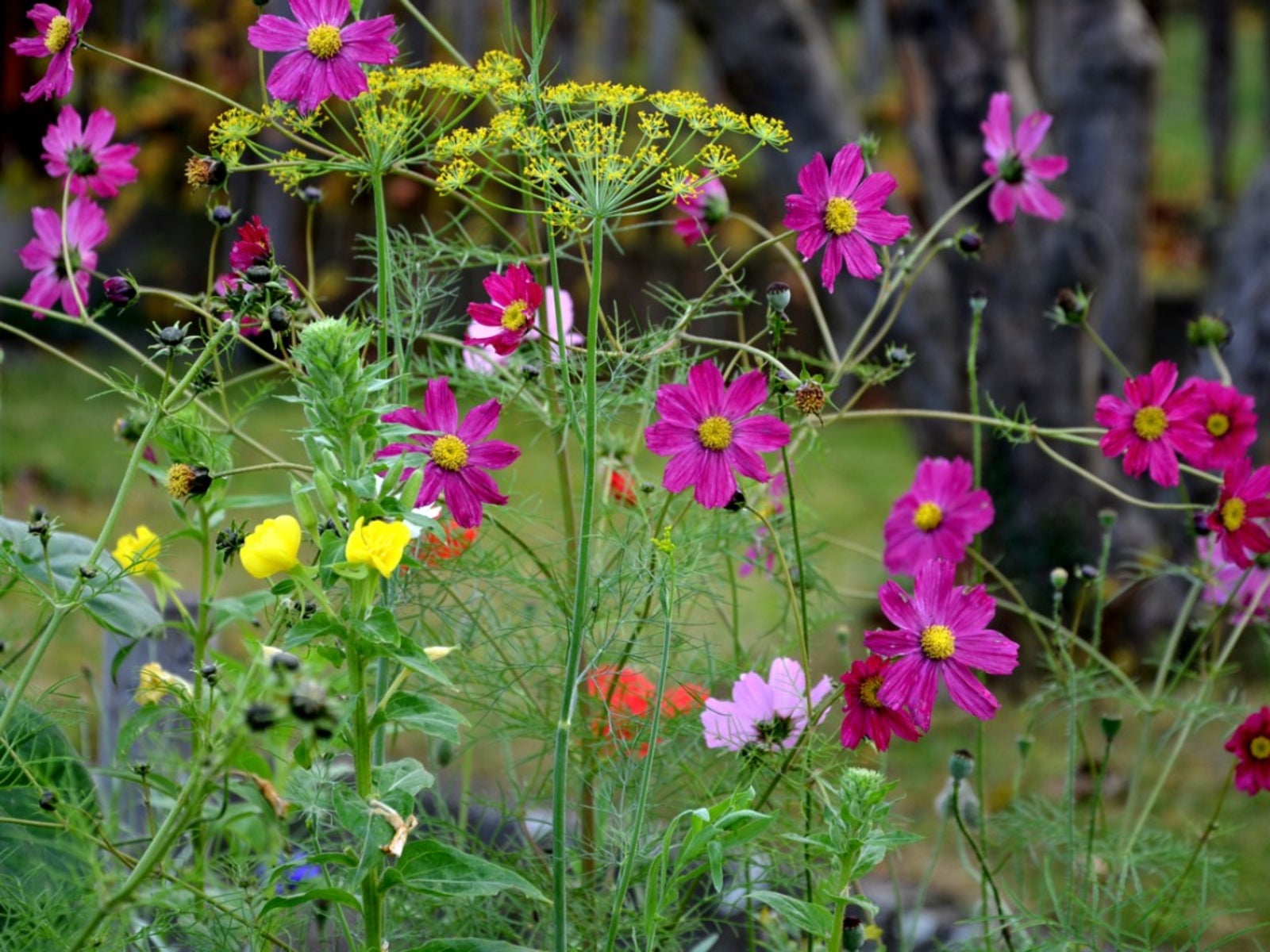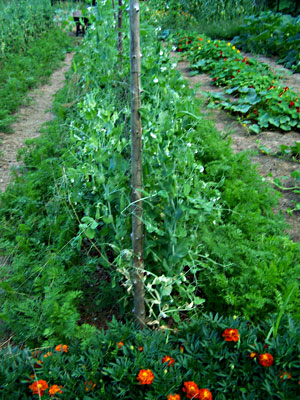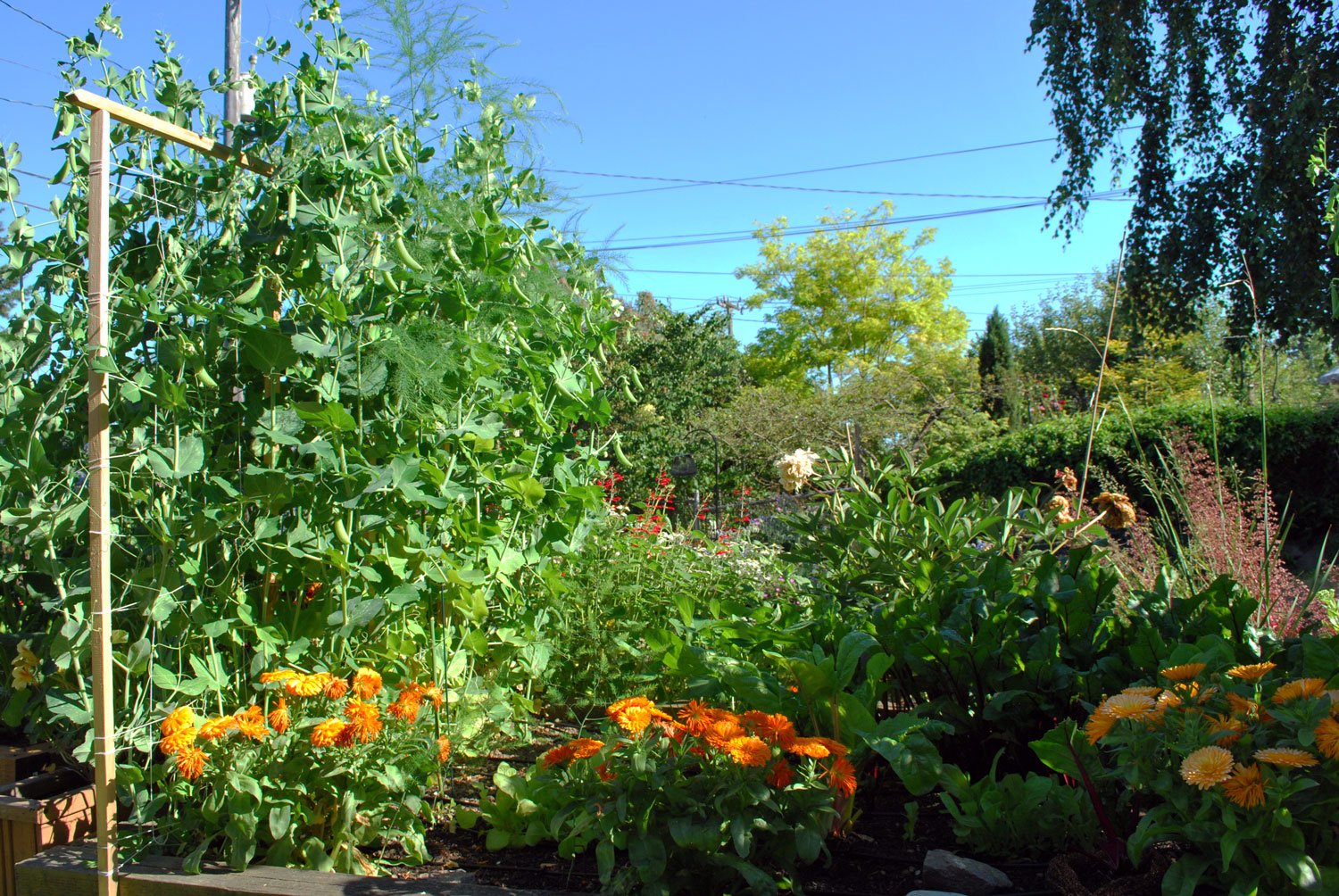Cosmos Companion Plants: The Ultimate Guide To Growing Healthy Vegetables
Cosmos Companion Plants: The Ultimate Guide to Growing Healthy Vegetables
Cosmos are beautiful, low-maintenance flowers that can add a touch of elegance to any garden. But did you know that they can also be beneficial for your vegetable plants? That's right, cosmos companion planting can help to improve the growth and health of your vegetables, attract beneficial insects, and deter pests.
In this blog post, we will discuss the best companion plants for cosmos, as well as some tips on how to plant them together for maximum benefits. We will also cover some of the reasons why companion planting works and how it can help you to grow healthier vegetables.
Why Companion Planting Works
Companion planting is a gardening practice that involves planting certain plants together in order to create beneficial relationships between them. These relationships can take many forms, but they often involve one plant attracting beneficial insects, deterring pests, or providing nutrients to another plant.
In the case of cosmos, they can be beneficial for a variety of vegetable plants. For example, cosmos attract pollinators such as bees and butterflies, which can help to increase the yield of tomatoes, cucumbers, and other vegetables. Cosmos can also help to deter pests such as aphids and whiteflies, which can damage vegetable plants.
Best Companion Plants for Cosmos
There are many different companion plants that can be grown with cosmos. Some of the best options include:
- Tomatoes: Cosmos attract pollinators that help to increase the yield of tomatoes. They can also help to deter pests such as aphids and whiteflies.

- Cucumbers: Cosmos provide shade for cucumbers, which can help to prevent them from developing powdery mildew. They can also help to attract pollinators.

- Peas: Cosmos help to improve the nitrogen content of the soil, which can benefit peas. They can also help to deter pests such as aphids.

- Carrots: Cosmos help to repel carrot flies, which can damage carrot plants. They can also help to attract pollinators.

- Spinach: Cosmos help to improve the drainage of the soil, which can benefit spinach plants. They can also help to attract pollinators.

How to Plant Cosmos Companion Plants
When planting cosmos companion plants, it is important to consider the size and growth habit of each plant. For example, tall cosmos varieties should be planted behind shorter vegetables, such as carrots or spinach. Cosmos should also be planted in full sun, as they need at least six hours of sunlight per day.
To plant cosmos companion plants, dig a hole that is twice the size of the plant's root ball. Add some compost or manure to the soil to improve drainage and fertility. Place the plant in the hole and backfill with soil, tamping down gently. Water the plant well and mulch around the base to help retain moisture.
Conclusion
Cosmos companion planting is a great way to improve the growth and health of your vegetable plants. By planting cosmos with the right companion plants, you can attract beneficial insects, deter pests, and improve the soil quality. With a little planning, you can create a thriving vegetable garden that is full of beautiful cosmos flowers.
Cosmos are beautiful, low-maintenance flowers that can add a touch of color and whimsy to any garden. But did you know that they can also be beneficial to your vegetable plants? That's right, cosmos can actually help to repel pests, attract pollinators, and improve the overall health of your vegetable garden.
If you're looking for more information about which vegetables to plant with cosmos, I recommend visiting Garden Wiki. This website has a comprehensive list of cosmos companion plants, as well as tips on how to plant and care for cosmos in your garden.
In addition to providing information about cosmos companion plants, Garden Wiki also offers a wealth of other gardening resources, including articles on plant identification, pest control, and soil health. So whether you're a beginner gardener or a seasoned pro, you're sure to find something helpful on this website.
FAQ of cosmos companion plants vegetables
- What are good companion plants for cosmos?
Cosmos are easy-to-grow annual flowers that can be planted in a variety of different settings. They are known for attracting beneficial insects, such as pollinators and predators, which can help to keep pests away from your vegetable garden. Some good companion plants for cosmos include:
* Marigolds: Marigolds are another flowering plant that is known for attracting beneficial insects. They can also help to repel pests, such as nematodes and whiteflies.
* Nasturtiums: Nasturtiums are edible flowers that can also help to deter pests. They are known to attract aphids, which are then eaten by other beneficial insects.
* Beans: Beans are nitrogen-fixing plants, which means that they can help to improve the soil quality for other plants. They can also help to shade the roots of cosmos plants, which can help to prevent them from drying out.
* Tomatoes: Tomatoes and cosmos are both heat-tolerant plants that can be planted together in the same garden. They can also help to attract beneficial insects, such as ladybugs and lacewings.
* Spinach: Spinach is a cool-season crop that can be planted in the same garden as cosmos in the spring or fall. It can help to shade the roots of cosmos plants, which can help to prevent them from drying out.
- What vegetables can I plant with cosmos?
In addition to the companion plants listed above, you can also plant a variety of vegetables with cosmos. Some good options include:
* Cucumbers: Cucumbers and cosmos are both heat-tolerant plants that can be planted together in the same garden. They can also help to attract beneficial insects, such as ladybugs and lacewings.
* Zucchini: Zucchini and cosmos are both relatively low-maintenance plants that can be planted together in the same garden. They can also help to attract beneficial insects, such as ladybugs and lacewings.
* Peppers: Peppers and cosmos are both heat-tolerant plants that can be planted together in the same garden. They can also help to attract beneficial insects, such as ladybugs and lacewings.
* Melons: Melons and cosmos are both heat-tolerant plants that can be planted together in the same garden. They can also help to attract beneficial insects, such as ladybugs and lacewings.
* Squash: Squash and cosmos are both heat-tolerant plants that can be planted together in the same garden. They can also help to attract beneficial insects, such as ladybugs and lacewings.
- What vegetables should I avoid planting with cosmos?
There are a few vegetables that you should avoid planting with cosmos, including:
* Potatoes: Potatoes and cosmos are both susceptible to the same pests and diseases, so planting them together can increase the risk of infection.
* Eggplants: Eggplants and cosmos are both susceptible to the same pests and diseases, so planting them together can increase the risk of infection.
* Tomatoes: Tomatoes and cosmos can compete for nutrients and water, so it is best to plant them in separate areas of the garden.
* Cabbage: Cabbage and cosmos can attract the same pests, such as cabbage moths and aphids, so planting them together can increase the risk of infestation.
* Broccoli: Broccoli and cosmos can attract the same pests, such as cabbage moths and aphids, so planting them together can increase the risk of infestation.
- How far apart should I plant cosmos and vegetables?
The spacing requirements for cosmos and vegetables will vary depending on the specific varieties you are planting. However, as a general rule of thumb, you should space cosmos plants 12-18 inches apart and vegetable plants 18-24 inches apart.
- What are the benefits of companion planting cosmos and vegetables?
There are many benefits to companion planting cosmos and vegetables. Some of the most common benefits include:
* Increased pollination: Cosmos attract beneficial insects, such as bees and butterflies, which can help to pollinate your vegetable plants.
* Reduced pest pressure: Cosmos can help to deter pests, such as aphids and whiteflies, from your vegetable plants.
* Improved soil quality: Cosmos are nitrogen-fixing plants, which means that they can help to improve the soil quality for other plants.
* Enhanced aesthetics: Cosmos are beautiful flowers that can add color and interest to your vegetable garden.
Image of cosmos companion plants vegetables
- Cosmos and tomatoes: Cosmos can help to deter tomato hornworms, a common pest of tomatoes.

- Cosmos and cucumbers: Cosmos can help to attract beneficial insects, such as ladybugs, which can help to control pests of cucumbers.

- Cosmos and beans: Cosmos can help to improve the soil quality for beans, and they can also help to attract pollinators.

- Cosmos and peppers: Cosmos can help to deter pests of peppers, such as aphids and whiteflies.

- Cosmos and squash: Cosmos can help to attract pollinators, which can help to improve the pollination of squash.

Post a Comment for "Cosmos Companion Plants: The Ultimate Guide To Growing Healthy Vegetables"